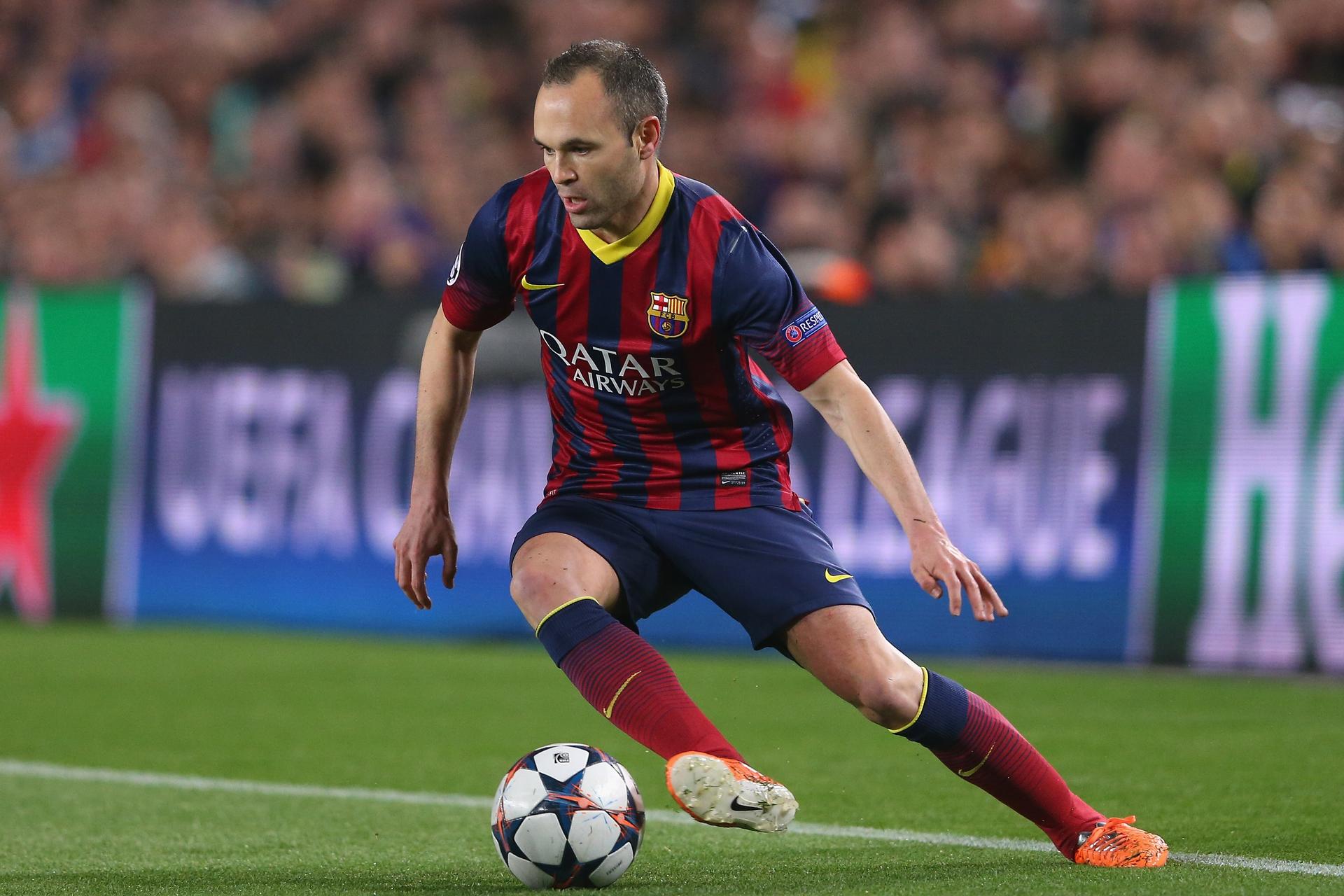To cheer or not to cheer? Spain’s Catalans face a dilemma over the World Cup
Barcelona’s Iniesta: The team remains an immense source of pride for Catalans.
LISBON, Portugal — Two stories will compete for airtime in Spain this summer: the national team's bid to retain their title as soccer's World Cup champions in Brazil and the raging debate over the Catalonia Region's bid for independence.
Soccer's biggest event kicks off next Thursday, six months ahead of an independence referendum called by the Catalan regional government that the Spanish authorities have declared illegal.
Despite the political tensions, Catalan separatists say it's okay for soccer fans to cheer on the national team of a country they want to break away from.
"There is no conflict at all," says Francesc Serra, a sports specialist from the Catalan National Assembly, a civil society group that lobbies for independence.
"There are a lot of Catalan people supporting the Spanish team for many reasons," he said in an interview from the Catalan capital Barcelona. "Of course, not with the same enthusiasm that you would meet in Madrid, for example, but there's no conflict."
Football and politics have long been linked in Spain.
Gen. Francisco Franco, the dictator who ruled the country for 36 years until his death in 1975, exploited the Spanish national team’s successes and his favored club Real Madrid in order to glorify the regime and help impose unity.
For Catalans who were denied free expression of their language and culture under his rule, the Barcelona football club became a proud symbol of resistance.
"Barca was the only way we had to maintain our identity during Franco's dictatorship," Serra explains.
"During that whole period of the dictatorship, Barca stayed in the hearts of people in Catalonia as the only way to maintain our different identity," he says. "That’s the strength of football in Catalonia."
After Spain's return to democracy, the authorities in Catalonia and other regions were given wider powers to run their local affairs.
The Catalan language and culture thrived. FC Barcelona remained an immense source of pride for many Catalans as it emerged as one of Europe's top teams, winning three Champion's League titles between 2005 and 2011 in addition to the first one captured in 1992.
For some independence-minded Catalans, however, relations with the Spanish national team remain complicated.
"I was happy, but I'm not going to go out and celebrate," nationalist politician Artur Mas, now head of the regional government, said on TV after Spain won the 2010 World Cup. "I wasn't out in the street, and certainly not with a Spanish flag. I'm just not going to do that."
Others in Barcelona partied long and loud after Spain's victory four years ago in South Africa, buoyed by the fact that the team’s backbone consisted of Barca stars such as Andres Iniesta, Xavi and Carles Puyol.
"The relationship between Catalonia and the Spanish team went through some great times when Barca made up most of the team, especially in South Africa," says Ramon Besa, sports editor for the daily El Pais in Catalonia.
"Of course they spoke about it as La Roja, rather than Spain," he says, referring to "The Red," the team's nickname. "That was sort of a euphemism that helped Catalans soften their relationship with the Spanish team. Also, the players employed a style similar to Barca’s, and the fans really appreciated that."
This time around, Barca is providing the biggest club contingent with eight players in coach Vicente del Bosque's 30-strong provisional roster. Nevertheless, Besa says, the team is unlikely to replicate its preeminent role of four years ago.
"I think the disaffection will grow," he said in a telephone interview. "The importance of Barcelona has diminished. Puyol is not there, Xavi isn’t in form. Politics may take over… I don't think supporters of independence will demonstrate against the team. They’ll just react with silence."
Despite his previous job as the coach of Real Madrid, del Bosque is well liked by fans in Barcelona. He insists tensions over the referendum are having no impact on the team.
"Within the squad, the atmosphere couldn't be any more cordial," he told Spanish National Radio in December after Spain secured qualification for Brazil. "There is no difference in the way any of the players feel about putting on the national team’s shirt."
Del Bosque said he finds it hard to imagine a Spanish team without Catalan players — there are five in the current squad: Gerard Pique, Jordi Alba, Sergio Busquets, Cesc Fabregas and Xavi — or a Spanish League without Barcelona.
Even nationalists who hope a Catalan team will someday compete in the World Cup are worried about the impact independence could have on Barcelona.
If the club were forced to play in a Catalan league against such small teams as Gimnastic and Reus Deportiu instead of enjoying regular "El Clasico" games versus Real Madrid and stadium-filling matches against other top teams in Spain's La Liga, the impact on the club’s finances and form could be catastrophic.
More from GlobalPost: 7 of the craziest moments in World Cup history
Independence activist Serra hopes a solution can be found that would allow Barca to remain in the Spanish league if Catalonia secedes.
"Everyone tends to think that Barca will find a way to keep being the same big team," he says.
Meanwhile, Serra shrugs off worries that another Spanish World Cup win could trigger an outburst of national unity that would undermine the separatist dream of an independent Catalonia.
"We’re adult enough to separate the two things," he insists. "Even though we've lived with the success of Spanish teams in the past few years, every day we have more and more people supporting independence."
